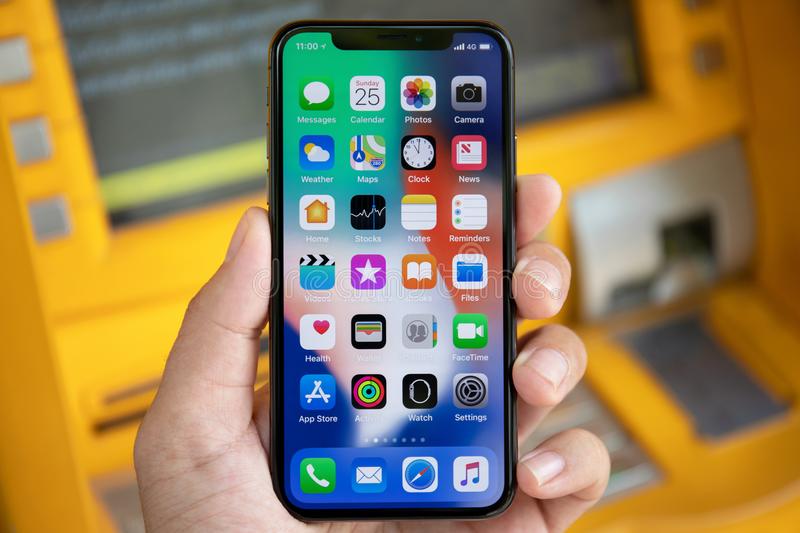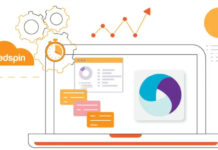In an attempt to catch up with other industries already using emerging technologies, the healthcare industry has made huge strides toward digitizing its services.
Over the course of the last decade, many of the traditional methods of accessing healthcare services have been supplemented or overtaken by the introduction of technological innovations.
One such innovation was the invention, and rising popularity of, mobile health (mHealth) apps. mHealth apps offer health-related services that can be accessed from your own home or on the go from your smartphone or tablet device.
As of 2018, 52% of people gathered health-related information on their phones, with a large proportion of that number owning at least one health-related smartphone app.
This means that it is more important than ever to think innovatively about the future of healthcare. And medical device software is one of the biggest drivers of innovation.
According to Orthogonal, “medical software applications are also becoming increasingly independent of hardware. This means that the same application can run several devices that perform the same functions.”
This trend has inspired many industry outsiders to take a stab at designing and launching new health apps. Apple, Google, and Amazon are just a few examples of tech giants bringing their skills to the healthcare industry.
Last year, Amazon launched its enterprise Alexa for Business platform which now follows HIPAA (U.S. Health Insurance Portability and Accountability Act) standards, allowing developers to invest heavily in the development of new health apps and skills.
This move comes after some of the largest names in healthcare already developed hundreds of skills and mHealth apps to help patients manage their medical conditions more effectively.
In fact, Zion Market Research has estimated that the mHealth app market will be worth $111.1 Billion USD by 2025.
It’s not an exaggeration to say that there’s an app for every type of patient.
A decade ago, some of these apps would have seemed plucked from a futuristic sci-fi movie.
This includes providing people with the opportunity to self-manage their health conditions, providing them with easy access to their health information, and automating simple tasks for health providers and patients with things like prescriptions and the ordering of certain tests.
Apps That Are Changing The Healthcare Landscape
With so many options on the market, it can be difficult to identify which mHealth apps are innovating the way healthcare is accessed. Here’s a roundup of the best, from meditation and fitness apps to the ones that streamline the work of healthcare professionals.
Headspace
Headspace is a mental health app that focuses on using guided meditation exercises to alleviate symptoms like stress and anxiety. They have different settings depending on what kind of help you need, including an emergency feature that can calm your mind in the case of a panic attack or moderate anxiety. This app also allows you to track your mental health to identify trends and see how healthy your mind is over time.
Yoga Daily Fitness
Yoga Daily Fitness is an app that aims to help people with their mental and physical health by providing them with easy yoga routines that even a beginner can follow. The app offers step-by-step instructions dozens of poses, and it also features relaxing tunes.
Charity Miles
The Charity Miles app not only motivates people to move more, by giving them money for charity. The more a user walks, runs, or bikes, the more he can donate to one of the 40 charities included in the program, including the Alzheimer’s Association, Girls On The Run, and Stand Up To Cancer.
So far, this app has raised over $2.75 million across its users.
Lifesum
Lifesum is an app that helps individuals monitor their diet and exercise levels. It does so by equipping them with tools such as an intuitive food diary, a macro calculator, and food plans for every type of diet from Keto to vegan, 5:2, and more.
Lifesum integrates with Google Fit and S Health, so people can import fitness data and weight and body measurements back to Lifesum.
Flo
Flo is a period tracking app aimed at women who wish to monitor their menstruation cycles. They provide information that allows individuals to find out more about their period symptoms, such as whether they are normal or could require further input from a physician or gynecologist. They also allow individuals to track symptoms before, during, and after their periods such as backaches, cramps, sex drive, mood, and more.
Nurx
Nurx is a female-orientated app that focuses on making birth control and STI checks as accessible as possible for women throughout America. They do this by allowing people to request an STI testing kit or order their birth control prescriptions and have them delivered to their door. No appointments or lab visits are required.
What’s more, Nurx offers automatic refills and unlimited consultations.
MeMD
This app provides patients with the ability to have online medical consultations with a variety of physicians, nurse practitioners, and physician assistants throughout the US.
MeMD specialists can diagnose and treat a multitude of common ailments from colds and sore throats to UTIs and skin infections. Users have access to personalized treatment plans, and even prescriptions when medically necessary.
Mobile MM
Mobile MM has been designed to allow healthcare professionals to share images from radiation oncology, radiology, neuroimaging, and cardiac imaging. Its aim is to enhance physicians’ access to image scans in a way that helps them to consult with peers on challenging cases, reduce image distribution delays, and share images with referring physicians, partner institutions, and patients in a safe and secure manner.
Diabetes Manager by WellDoc
WellDoc has designed their Diabetes Manager app for people with type 1 diabetes who inject pre-meal fast or rapid-acting insulin. The system calculates users’ pre-meal insulin dose based on their blood glucose reading. The app is compatible with iPhone, iPad, and iPod touch.
Apple Heart Study App
Announced at the launch of the latest Apple Watch release, the Apple Heart Study app catches irregular heart rhythms that don’t show up during a regular medical exam but may lead to heart failure over time. “The results of the Apple Heart Study highlight the potential role that innovative digital technology can play in creating more predictive and preventive health care,” said Lloyd Minor, MD, dean of the Stanford School of Medicine.
Gauss Pixel App
Created with surgeons, nurses, and other such professionals in mind, this app provides them with an easy way to accurately measure the amount of blood loss that occurs in specific surgical procedures. How? The app automatically calculates blood loss of weighed items. What’s more, thanks to its Feature Extraction Technology™, the app effectively estimates blood content independent of non-sanguineous fluids.
What The Future Holds For Health Apps
As you can see, the innovative health apps we’ve gathered in this article are already having a dramatic impact on the future of health apps. And industry experts believe this is just the beginning.
As a result, we could expect to see more mHealth app creators turning towards blockchain technology in order to keep users’ information secure. Artificial intelligence (AI) is another technology that is starting to take off, as developers are trying to find new ways of delivering more value to patients.
The app market might be huge, but there’s still room for growth. Patients are asking for better instant communication solutions such as chat features, video or facetime. They want apps that work as early detection tools, helping them add precious years to their lives.
In a nutshell, they want to be in control of their own health. As the market for health apps continues to increase, the challenge for developers will be to convince people that their app can truly help them get a better understanding of their own bodies.


























